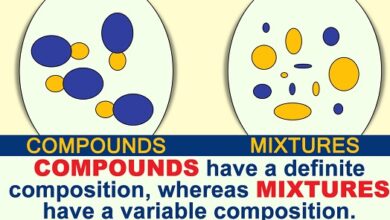Difference between coaching and mentoring/Definiitons
What is coaching?
Coaching is a methodology that maximizes results that transform an individual’s personal, emotional and professional life in the short term. The person responsible for conducting the process is the coach (“trainer”, in the literal translation) and the client who receives the guidance is called the coachee. The coach helps, through questions and techniques, the coachee to move from the current state to the desired state. The process takes place through weekly or biweekly sessions, and at each meeting the coach presents tasks so that the client can achieve the defined goals within a predetermined period. In this article we will make you realize about the difference between coaching and mentoring.
Who is the professional who conducts the Coaching
The professional who implements this methodology is called Coach and has the function of guiding the coachee, or client, through self- knowledge , since one of the objectives is to seek the autonomy of the individual .
Depending on the area of training, the coach can work professionally in personal life, business life, professional life, marital life, among other sectors of the client’s life, depending on the demand.
To practice this profession, he does not need to have a degree in higher education, but it is important to be accredited and have certificates that he attended a trained center approved by coaching bodies.
In addition, the professional does not need to be an expert or understand specifically the branch of the area in which the coachee works.
The Coaching Strategy
Remember that the coaching strategy will deal with the client’s emotional performance, not practical and technical performance. In this way, he can act as a financial, personal, business, marital coach, among other modalities, just having a correct certification.
For example: if a company in the agribusiness sector needs to hire a coach, it is not mandatory that he/she have any training or higher education related to agricultural sciences, because his/her objective is to act on the performance and performance of employees.
What is mentoring?
Mentoring is a process in which the older and more experienced professional guides and shares experiences and knowledge with younger professionals, giving them advice for the development of their careers.
Who is the professional who conducts the Mentoring
The mentor who will work with the sharing of professional techniques with his collaborator is not obliged to take a mentoring course, as he is already a senior professional, who has advanced in his career through his efforts and has had professional experiences proving his professional development by after your career.
That is, he is highly qualified to mentor a young professional, mainly because he has dense professional experience. So he does not need, as the coach does, a specific certification.
The mentoring strategy
Let’s see what the Mentoring strategy is through a practical example. Let’s say you want to become a skier and you’re heading to Switzerland today. There you will find a trainer or an instructor who knows how to teach this type of class.
After some time, you have already managed to evolve considerably in the sport and today you compete at an international level, so the figure of the mentor comes in. He is the skier who has won championships, who has built a career and advanced professionally in skiing. And so you count on it to increase your professional performance.
Difference between coaching and mentoring
The characteristics that best reflect the differences between coaching and mentoring are as follows:
1-Coaching is focused on goals as a priority
For example, losing weight and having healthier habits.
The important thing is to develop a plan associated with goals here to achieve it. Mentoring focuses on the professional relationship, but the emotional relationship plays a very important part. The trust a mentor builds is essential for their students.
2-Coaching is usually one-off, with long-term mentoring
Coaching sessions can be specific and need not be excessively long, depending on the case, but a certain number of sessions can be approximated at the beginning.
In mentoring, they are long-lasting relationships that continue even after the work together has ended. A greater and longer emotional bond is created over time.
3-Coaching is short and medium term, and mentoring is long term
For example, when coaching training is carried out in a company and you start from the first minute to put the recommended guidelines into practice, you will see these results in a more immediate moment than mentoring where you work more individually and to a greater extent. in time.
4-The learning method is different in coaching and mentoring
In coaching, it is the client who finds their answers as the process progresses. In mentoring, this is not the case, as the mentor’s experiences, ideas and guidance are shared with the student from the beginning.
We hope you have understood the difference between coaching and mentoring.




